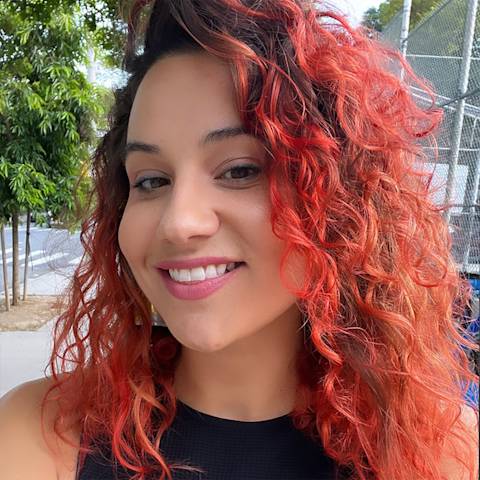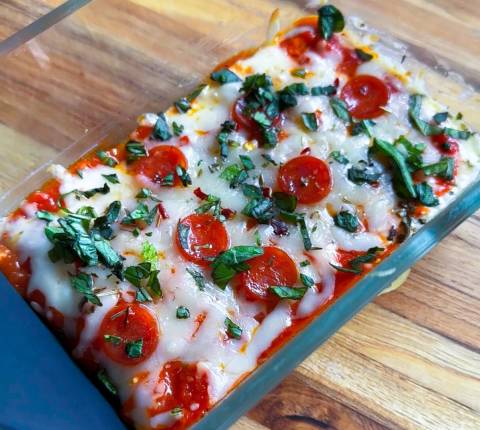For chef Kwame Onwuachi, there’s no such thing as a typical day. He could be going over the books at his newly opened and widely acclaimed New York City restaurant, Tatiana, or picking out decor for his as-yet-unnamed 200-seat restaurant at Washington D.C.’s Salamander Hotel, slated to open next year. He could be consulting on the forthcoming film adaptation of his memoir, “Notes From a Young Black Chef,” or picking out new shades for his nail polish line with Orly. He could be speaking on a panel at a food festival or working on a TV project for the production company he just started — though he can’t share any more details on that just yet. “Those are the most exciting things,” he says. “The things you can't talk about.”
It’s undoubtedly a lot for one person to juggle, but Onwuachi remains undaunted. “I find calmness in the chaos,” he tells me. “For people who are hyper-motivated or always seem busy, that’s kind of our safe space. The opposite of that seems more chaotic to me — when things are still.”
Perhaps it’s a good thing then, that for Onwuachi, things have rarely been still. As his memoir details, the chef grew up in the Bronx but was sent to rural Nigeria at age 10 to live with his grandfather and “learn respect,” as his mother put it at the time. But when he returned after a couple of years, he fell in with a rough crowd that led him on a downward spiral of partying and gang violence. It was his mother’s cooking that eventually brought him back to himself; not long after he’d been kicked out of college for selling drugs, he made her chicken curry — and something just clicked. He moved to Baton Rouge to live with her and pursue a culinary career.
After a gig cheffing aboard the Deepwater Horizon oil spill cleanup ship, Onwuachi eventually earned enough money to move back to New York and open his own catering company. Later, he attended the Culinary Institute of America, where he honed his craft and worked an externship at Thomas Keller’s restaurant Per Se, followed by a post-graduation job as a line cook at Eleven Madison Park.
I find calmness in the chaos. For people who are hyper-motivated or always seem busy, that’s kind of our safe space. The opposite of that seems more chaotic to me — when things are still.
A 2015 stint on “Top Chef,” where Onwuachi was an audience favorite, led to calls from investors and eventually a restaurant called Shaw Bijou in D.C. Reviews were mixed, the primary investor pulled out, and the restaurant collapsed in less than a year, leading to what could have been a dead end in the chef’s career. Instead, Onwuachi took some time to regroup before opening a new Afro-Caribbean restaurant called Kith and Kin in late 2017 that achieved the kind of critical acclaim and national success Shaw Bijou could not.
Yet it wasn’t until last year — when he opened Tatiana — that Onwuachi felt like he’d truly made it on his own terms.
“Tatiana is my love letter to New York,” he says. “I grew up in the Bronx, where within a one block radius you could find 10 different restaurants representing 10 different cultures. That really speaks to the neighborhood and to the people that came here and built this city. Tatiana is an homage to my childhood. It’s named after my sister and it tells the story of New York with an Afro-Caribbean throughline.”
Stepping into the Lincoln Center restaurant — with its marble-topped tables, color-changing light fixtures, and lush tropical greenery — is like being transported straight into Onwuachi’s personal fever dream (and a delicious one at that).
Plump, golden-browned dumplings filled with a rich mix of peekytoe crab and egusi soup (a nutty, spicy Nigerian staple that, according to the chef’s memoir, his Texas-born mother often made in an effort to please his Nigerian-born father) sit in a pool of tomato-y stew. Succulent head-on shrimp bathed in Creole butter and paired with crisp brioche call forth his mother’s Gulf Coast upbringing. Oxtails, a hallmark of Caribbean cuisine, are served two ways: stuffed into crispy rangoons with crab and creamy pimento cheese; and braised for days to butter-soft perfection in an unctuous, cinnamon-kissed reduction sauce. Shawarma-roasted chicken served over turmeric-scented rice topped with tender braised lamb pays tribute to the ubiquitous halal carts of New York City. “That’s probably the dish that’s most exciting to me,” says Onwuachi. “It's very New York.”
Every single item that comes out of Tatiana’s kitchen tells a story about who Onwuachi is and where he came from, whether that’s his own personal upbringing or the greater Afro-Caribbean diaspora. And that’s the whole point — not just of Tatiana but of everything he’s done and will do in his multifaceted, ever-expanding career.
“I want to continue to tell stories through different mediums,” says Onwuachi. “Through food, through brands, through products that I launch, or television, or books, or restaurants that I open. I just want to continue telling stories that uplift my people and leave things a little bit better than how I found them.”
Check out Kwame's favorite takeout meals, drinks, and more here.
PHOTO CREDIT: Courtesy of Kwame Onwuachi






